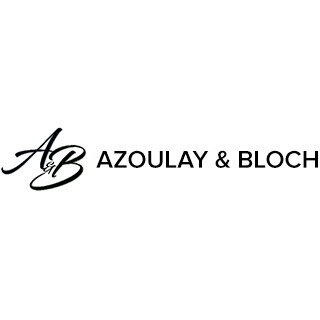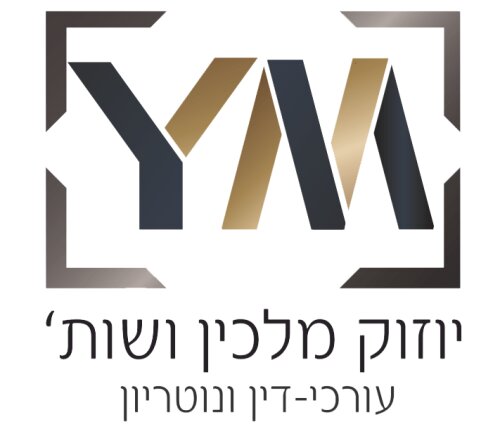Best Antitrust Litigation Lawyers in Jerusalem
Share your needs with us, get contacted by law firms.
Free. Takes 2 min.
List of the best lawyers in Jerusalem, Israel
About Antitrust Litigation Law in Jerusalem, Israel
Antitrust litigation refers to legal actions regarding violations of fair competition laws. In Jerusalem, as throughout Israel, antitrust law is designed to maintain a competitive marketplace by prohibiting monopolistic practices, restrictive arrangements, and undue concentration of economic power. Such laws are vital for protecting consumer interests, encouraging innovation, and ensuring equal opportunities for businesses. Antitrust litigation typically involves enforcement by government bodies as well as private legal actions by affected parties, handled under the Israeli Restrictive Trade Practices Law and related regulations.
Why You May Need a Lawyer
There are numerous situations where individuals or companies may need legal support in antitrust matters in Jerusalem. Common scenarios include:
- Being investigated for alleged price-fixing, bid-rigging, or market allocation - Facing accusations of abusing a dominant market position - Participation in mergers or acquisitions that require regulatory approval under antitrust laws - Becoming a victim of unfair competition practices and needing to seek damages - Challenging restrictive agreements that limit your market participation - Defending against enforcement actions by the Israel Competition Authority - Understanding compliance requirements to avoid inadvertent violations
An experienced antitrust lawyer can help you navigate these complicated legal issues, represent you before authorities or courts, and provide strategic guidance to protect your interests.
Local Laws Overview
The main legal framework governing antitrust issues in Jerusalem and throughout Israel is the Restrictive Trade Practices Law, 5748-1988, commonly referred to as the Israeli Competition Law. Key aspects include:
- Prohibiting restrictive arrangements that prevent or reduce competition - Regulating mergers and acquisitions which may create or strengthen market dominance - Monitoring and restricting conduct of monopolies and entities with a dominant market position - Enabling both criminal and civil penalties for violations - Allowing private parties harmed by anti-competitive conduct to file lawsuits for damages - Empowering the Israel Competition Authority (ICA) to investigate, enforce, and approve transactions
Understanding how these laws are enforced locally is crucial, as Jerusalem serves as a focal point for regulatory activities, and court cases often set important precedents.
Frequently Asked Questions
What is considered a restrictive arrangement under Israeli law?
A restrictive arrangement is any agreement between competitors or suppliers-customers that limits competition, such as price-fixing or market division, unless it falls within an exempt category or receives ICA approval.
Who enforces antitrust laws in Jerusalem?
The Israel Competition Authority (ICA) is responsible for investigating and enforcing antitrust laws both in Jerusalem and nationwide.
Can private companies file lawsuits for antitrust violations?
Yes, private parties who have suffered damages as a result of anti-competitive practices may pursue civil action and claim compensation.
Does every merger require approval from the ICA?
Not every merger needs approval, but if the combined companies meet specified thresholds relating to market share or turnover, ICA approval is mandatory before completion.
What penalties can result from violating competition laws?
Penalties may include fines, orders to cease the illegal conduct, reversal of completed mergers, and in severe cases, criminal sanctions such as imprisonment.
How can a business ensure compliance with antitrust laws?
Businesses should establish internal compliance programs, seek legal counsel before entering agreements with competitors, and consult with experts regarding the competition aspects of mergers or strategic collaborations.
What should I do if my business is being investigated by the ICA?
Cooperate with the investigation, but seek immediate legal advice to safeguard your rights and prepare an appropriate response to allegations or requests for information.
Are there legal defenses available for alleged antitrust violations?
Several defenses exist, such as proving the arrangement does not restrict competition or falls under an exemption, demonstrating lack of intent, or showing minimal impact on the market.
Can foreign companies be subject to Israeli antitrust law?
Yes, if the conduct affects competition within the Israeli market, foreign entities may be subject to investigation and enforcement even if the conduct occurred abroad.
How long do antitrust litigation proceedings typically last?
The duration varies depending on case complexity, but investigations and court procedures can take months to several years, especially in large-scale cases involving multiple parties.
Additional Resources
For further assistance and information regarding antitrust litigation in Jerusalem, you can consult the following:
- Israel Competition Authority (Rashut Hatakhrut): The primary enforcement body providing guidelines, decisions, and public information - Jerusalem District Court: Handles competition disputes within the jurisdiction - Israeli Bar Association: Offers directories of lawyers and legal experts specializing in competition law - Business associations: Many provide seminars and resources regarding compliance with local competition laws - Academic institutions in Jerusalem: Such as Hebrew University’s Faculty of Law, often publish research and host conferences on competition policy
Next Steps
If you believe you are involved in or affected by an antitrust issue in Jerusalem, follow these steps for effective resolution:
- Gather all relevant documentation such as contracts, communications, and evidence of suspected anti-competitive conduct - Consult with a qualified antitrust lawyer who is familiar with local laws and regulatory procedures - Respond promptly and carefully to any inquiries from the Israel Competition Authority or other legal bodies - Review your business practices for ongoing compliance and make necessary changes - Consider alternative dispute resolution processes if appropriate, but be prepared for litigation if negotiations fail
Timely and informed legal action is the best way to protect your rights and minimize potential risks in antitrust matters.
Lawzana helps you find the best lawyers and law firms in Jerusalem through a curated and pre-screened list of qualified legal professionals. Our platform offers rankings and detailed profiles of attorneys and law firms, allowing you to compare based on practice areas, including Antitrust Litigation, experience, and client feedback.
Each profile includes a description of the firm's areas of practice, client reviews, team members and partners, year of establishment, spoken languages, office locations, contact information, social media presence, and any published articles or resources. Most firms on our platform speak English and are experienced in both local and international legal matters.
Get a quote from top-rated law firms in Jerusalem, Israel — quickly, securely, and without unnecessary hassle.
Disclaimer:
The information provided on this page is for general informational purposes only and does not constitute legal advice. While we strive to ensure the accuracy and relevance of the content, legal information may change over time, and interpretations of the law can vary. You should always consult with a qualified legal professional for advice specific to your situation.
We disclaim all liability for actions taken or not taken based on the content of this page. If you believe any information is incorrect or outdated, please contact us, and we will review and update it where appropriate.














